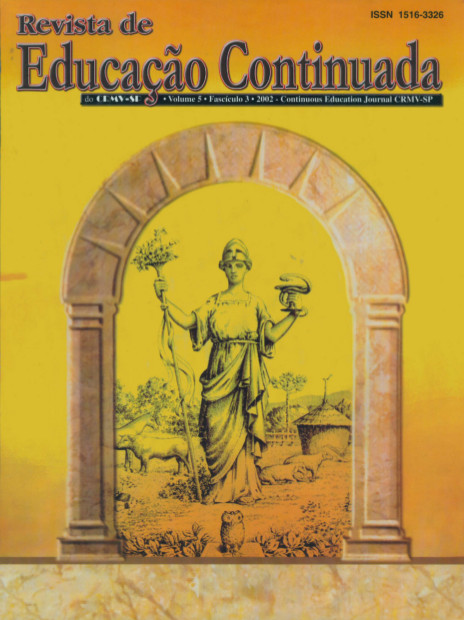Controle de qualidade nos serviços públicos: a experiência dos programas de saúde animal
Conteúdo do artigo principal
Resumo
Sendo os indicadores de qualidade importantes ferramentas de avaliação, devem ser, permanentemente, aperfeiçoados para que sua utilização permita a avaliação contínua das atividades desenvolvidas. No presente relato procuramos analisar estes indicadores de uma maneira simplista, objetivando alertar as autoridades para a necessidade de sua utilização e importância da correspondente implantação nos Programas de Qualidade Total nos serviços públicos, visando sua consequente assimilação e incorporação como ferramenta de trabalho. Para tanto, faz-se necessário não apenas a redefinição do papel do Estado, mas também a conscientização de que as instituições públicas representam para a sociedade o Governo e que é pela qualidade de seus serviços que os governos são avaliados. Para que a sociedade possa alcançar padrões adequados de qualidade devida, o setor público precisa funcionar de maneira eficiente, sendo o maestro da orquestra. No Brasil, muitos programas de Combate às Doenças Animais têm sido implementados, porém o frágil desempenho ou a lentidão do seu encaminhamento tem decorrido da falta de valorização das pessoas que compõem os quadros funcionais e da falta de comprometimento das autoridades governamentais superiores. Nesse sentido, o filósofo Bertrand Russel ponderou, em 1918, que: "quando as necessidades elementares estiverem satisfeitas, a verdadeira felicidade da maioria dos homens dependerá de duas coisas: seu trabalho e suas relações humanas" (RUSSEL, 1977). O sistema governamental, até agora vigente, tem penalizado a competitividade das instituições, sendo seu pior atributo o interesse de novas administrações em destruir ou modificar as programações de seus antecessores, quando seria mais proveitoso utilizar as experiências adquiridas pelas equipes e dirigentes substituídos. Na realidade, perde-se mais tempo reestruturando ou revogando diretrizes dos antecessores do que as colocando em prática. A implantação da Qualidade Total, com adoção de indicadores de qualidade, passa pela mudança de paradigmas, em especial, pessoas, recursos mais importantes de uma organização. Sugerimos o respeito e a valorização do profissional e a elaboração dos planos e metas de atuação, com indicadores de qualidade em todos os programas desenvolvidos, utilizando como exemplo a transformação do programa de controle de febre aftosa em programa de erradicação.
Detalhes do artigo
Edição
Seção
1. Autores mantém os direitos autorais e concedem à revista o direito de primeira publicação, com o trabalho licenciado sob a Creative Commons Atribuição-NãoComercial-SemDerivações 4.0 Internacional
2. Autores têm autorização para assumir contratos adicionais separadamente, para distribuição não-exclusica da versão do trabalho publicada nesta revista (ex.: publicar em repositório institucional ou como capítulo de livro), com reconhecimento de autoria e publicação inicial nesta revista.
3. Autores têm permissão e são estimulados a publicar e distribuir seu trabalho online (ex.: em repositórios instituicionais ou na sua página pessoal) a qualquer ponto antes ou durante o processo editorial, já que isso pode gerar alterações produtivas, bem como aumentar o impacto e a citação do trabalho publicado (Veja O Efeito do Acesso Livre);
